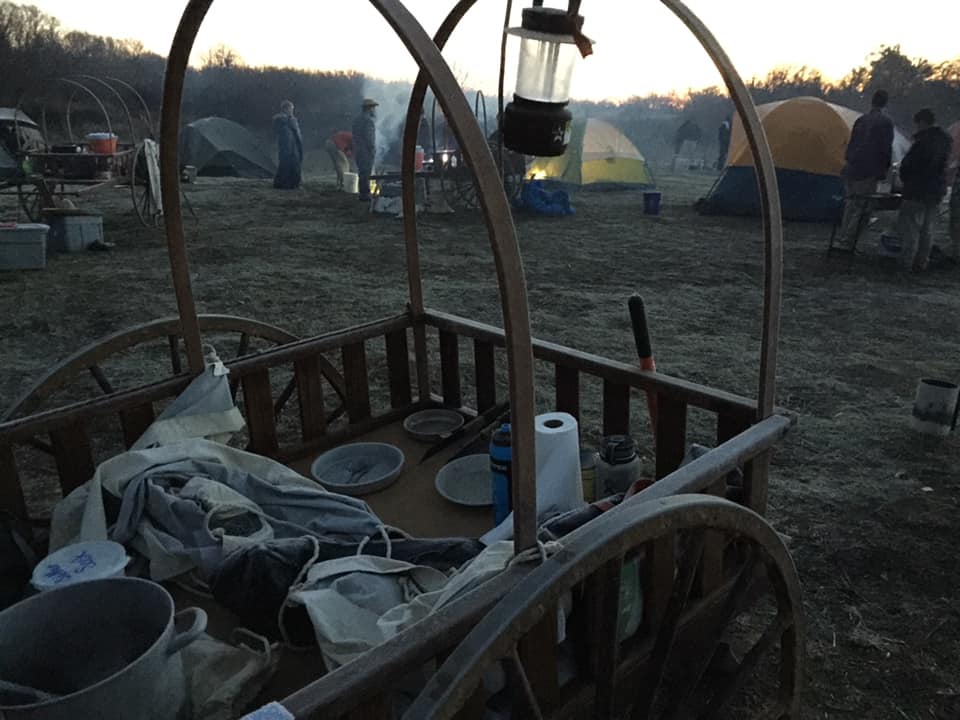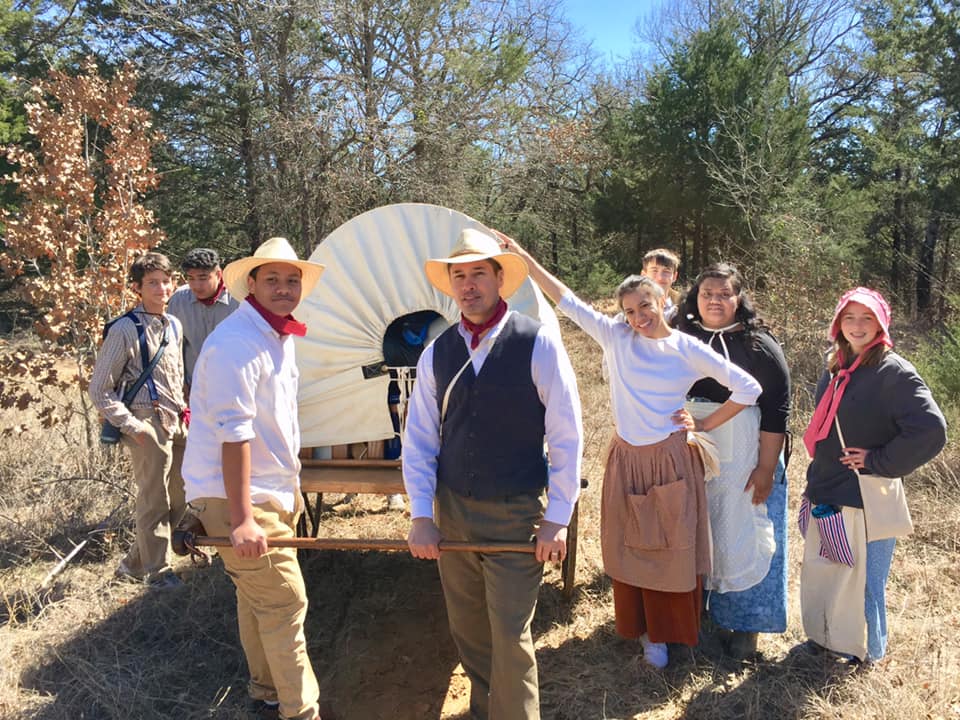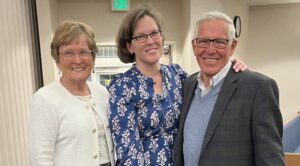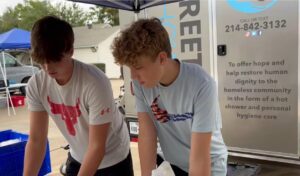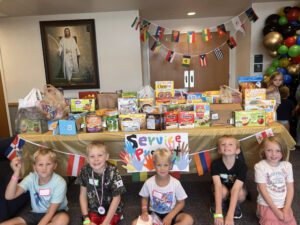Hurst Texas Stake Youth experience Pioneer Trek
One hundred fifteen young men and young women, ages 14 to 18, of the Hurst Texas Stake of The Church of Jesus Christ of Latter-day Saints participated in a 13-mile pioneer handcart trek reenactment at the LBJ Grasslands in Decatur March 13 – 16, 2019.
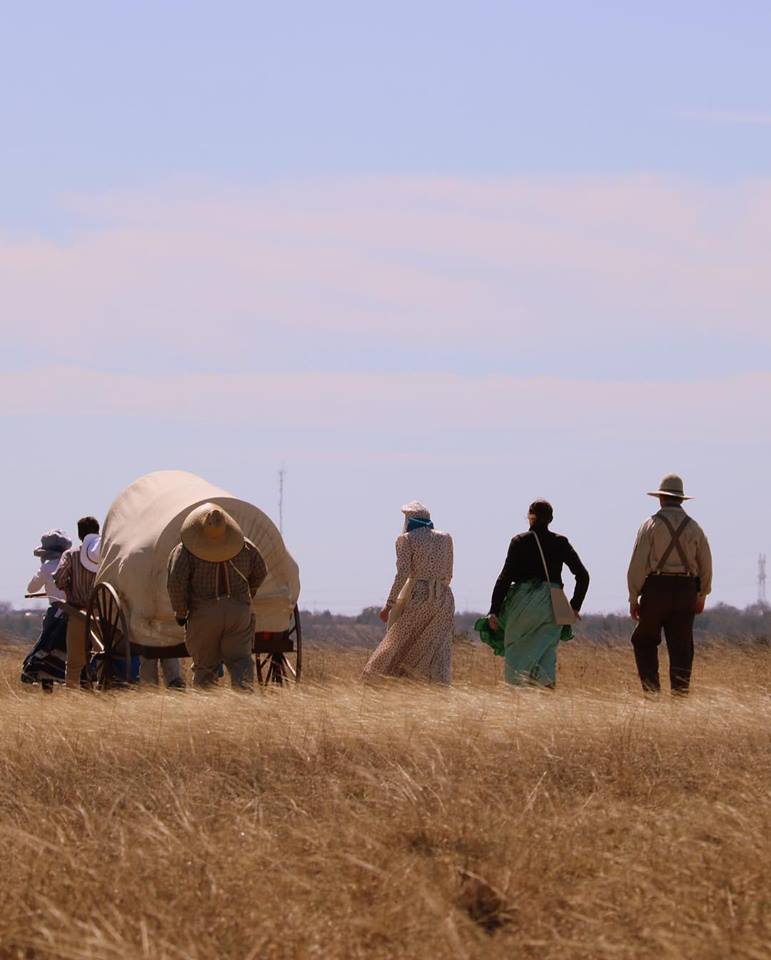
Photo courtesy of Caroline Shillig
The Church of Jesus Christ’s youth ‘Trek Experience’ is a re-enactment of the Church’s early pioneers, who pulled handcarts from Iowa to Salt Lake City, a distance of nearly 1300 miles. These pioneers headed west towards the Rocky Mountains to escape religious, social, and physical persecutions suffered in parts of New York, Ohio, Illinois, and Missouri, where members had been settling in the early re-establishment period of the Church.
Greg Morrill, Young Men’s President in the Hurst Texas Stake of the Church, who participated in the 13-mile Trek, said, “The participating young men and women are challenged mentally and physically during the two and half days of pulling and pushing handcarts, but the real purpose of the Trek activity is to teach the church youth to appreciate the sacrifices their ancestors made when crossing the plains and to help strengthen their Faith.” He also added, “Trek strengthens young men and women personally, and gives them an experience to draw from when faced with trials and adversity in their personal lives.”
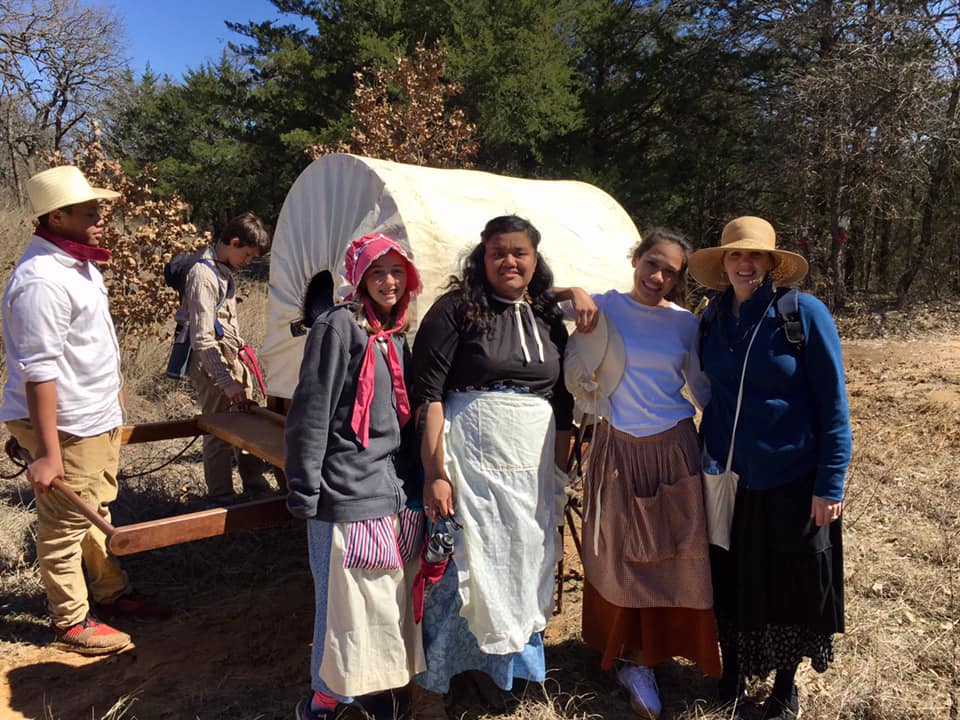
Photo courtesy of Caroline Shillig.
Many leaders, supporting staff members, and hours go into planning and carrying out a successful Trek for the Church’s youth. In addition to the 115 youth members, there were 27 volunteer leaders which included 12 “Ma” and “Pa” couples and other supporting staff members, with an additional 15-person, volunteer staff that spent four months helping to plan the event.
Morrill said the real purpose of the planning is to promote authentic experiences that will leave lasting impressions on the participants. “The dust, the cold, the tired legs and feet all contribute to a taste of life on the trail. We don’t just talk about it and say, ‘can you imagine it?’, these young men and women who participate are the actors and experience all the emotions first hand.”
Before Trek begins, youth participants are divided and assigned to supporting families and companies, each led by a husband and wife couple, referred to as “Ma” and “Pa.” Each Ma and Pa couple supports their assigned youth along the way, helping to pull the carts, setting up camp, preparing food in Dutch Ovens, holding family devotionals, and helping the youth to make new friends.
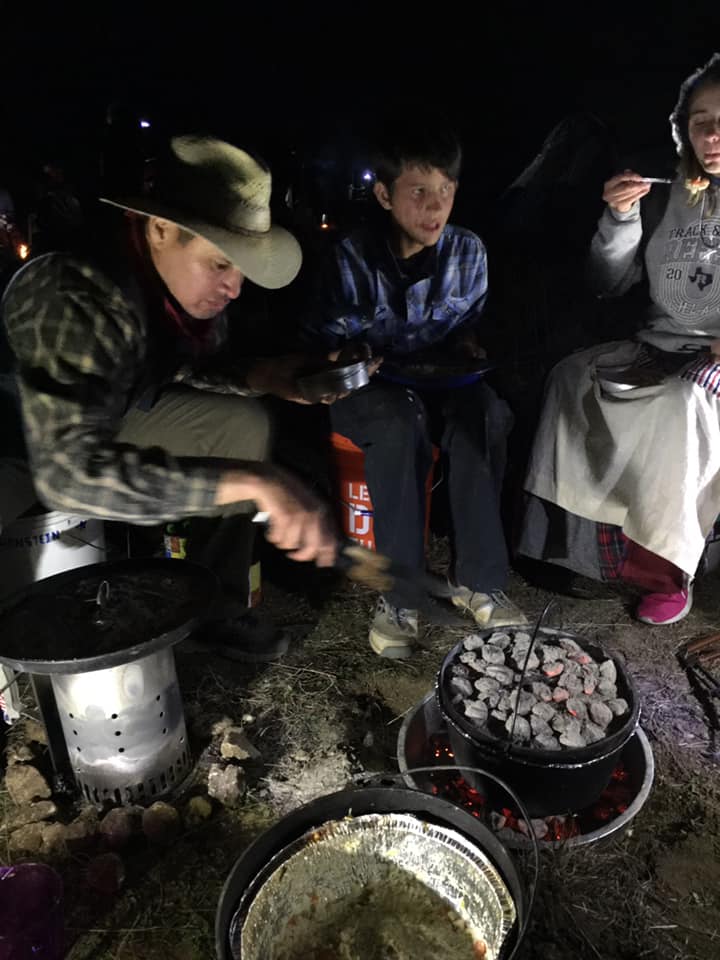
Denice Honstein of the Euless 1st Ward congregation, who participated as a Ma and Pa couple over a family of 8, along with her husband, Robert, shared how the Church’s Trek Experience helps the youth get away from civilization and current technology and allows the participants refocus on the human aspects of life:
“I think we have to work much harder in today’s world to help our children and ourselves stay focused on what’s important […] family, charity, real friendships, awareness, spirituality. […] the things that phones take away a lot of the time,” Honstein stated.
“Pa” Robert Honstein said, “The lack of modern conveniences, the never-ending work and toil, and the elements of cold, deep muddy crossings, and steep hills constantly reminded us of a life much harder than our own, and we were all determined to make sure that we all made it to the end of the journey.”
As part of the experience, the young men and women dress in clothes like those worn by the original handcart pioneers and leave the comforts of home behind. They help assemble as well as take apart their handcarts, set up and clean up camp, and deal with the real responsibilities and aspects of life on the trail.
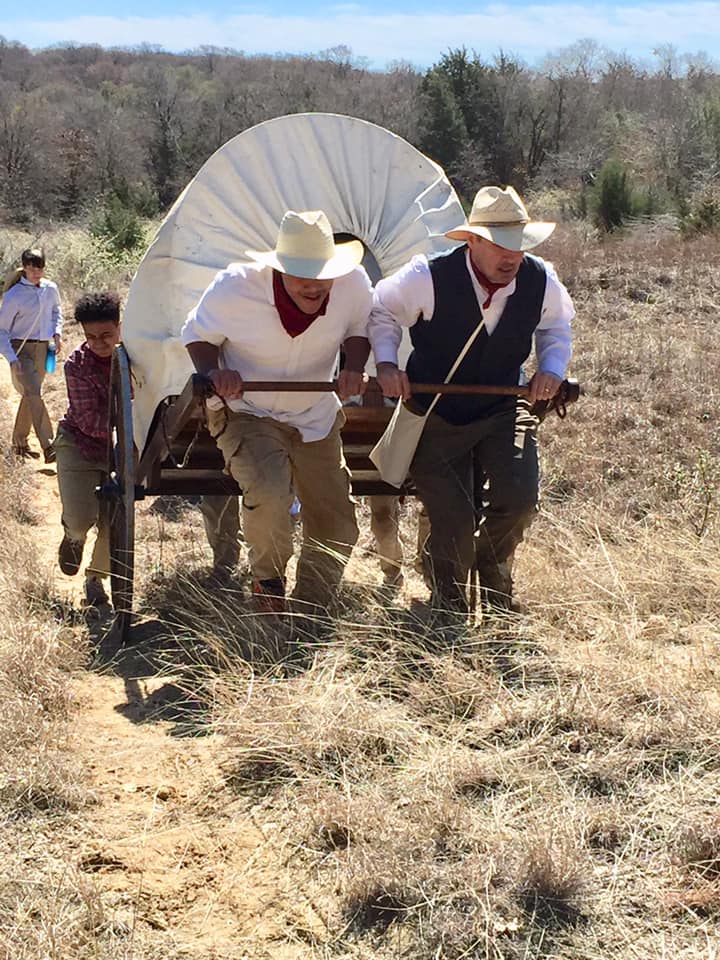
L.D. Bell High School student Alex Ahau, 17, of the Euless 2nd Tongan Ward congregation said, “We had to overcome physical, spiritual, and emotional pains, and the emotional aspects and spiritual feelings [of the reenactment] felt real for me.”
In order to reflect the realities of life on the trail, families were also given hardships for re-enactment that the original pioneers faced on the trail, such as illnesses, losing a baby, or women having to pull and push the handcarts without the help of the men who were called away in support of the Mormon Battalion.
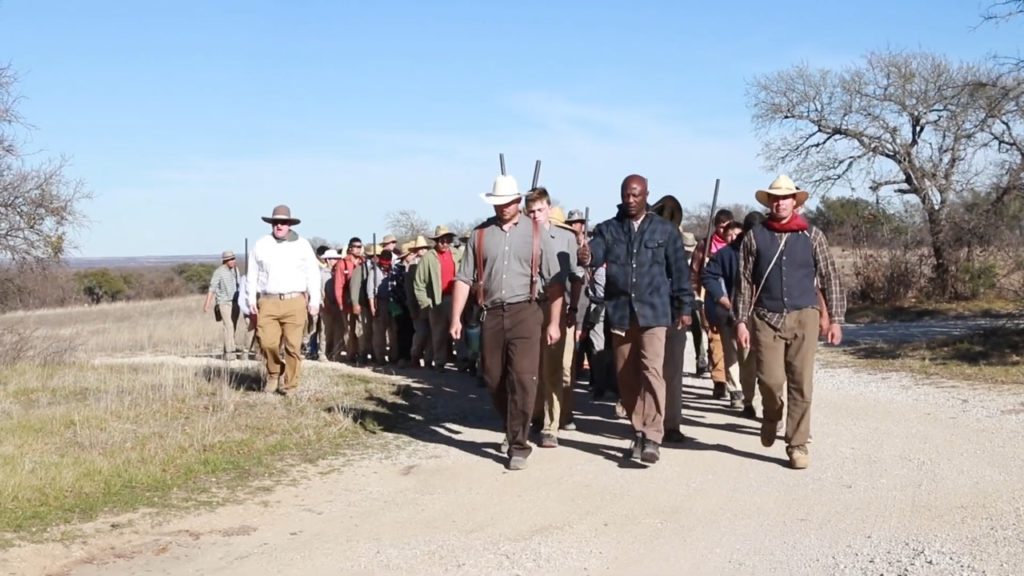
Claire Growald, a 17-year-old Senior at Richland High School, and member of the Watauga Ward congregation shared how memorable it was for her to pull together alongside the other women in her assigned family when the men and boys were called away in a re-enactment to the support of the Battalion.
“The women’s pull touched so many people’s hearts,” Growald said. “When the women had to push the carts without the men, and [the men] had to watch us do it on our own, it was a true moment of independence for the women, but it was also a moment of appreciation to us for the boys’ help […] And for the boys, it seemed to be a moment of great appreciation for the strength of their mothers and sisters.”

“Ma and Pa” Mite Ahau and his wife Taionala Ahau, members of the Euless 2nd Tongan Ward congregation, shared how this year’s weather and the physical hardships of the trail really helped give the participating youth a new perspective about the trials their pioneer ancestors endured and helped them find the extra strength they needed to endure:
“First, we struggled with the cold weather. Our first night into the morning, the temperature dropped below freezing, and we awoke to frost all over the ground. And second, we struggled with the trail itself, as some of the youth had never walked such a far distance,” Ahau said. “However, through this experience, they have a better appreciation and understanding of what the handcart pioneers sacrificed and endured, and some of the youth even expressed how this experience has changed their lives.”
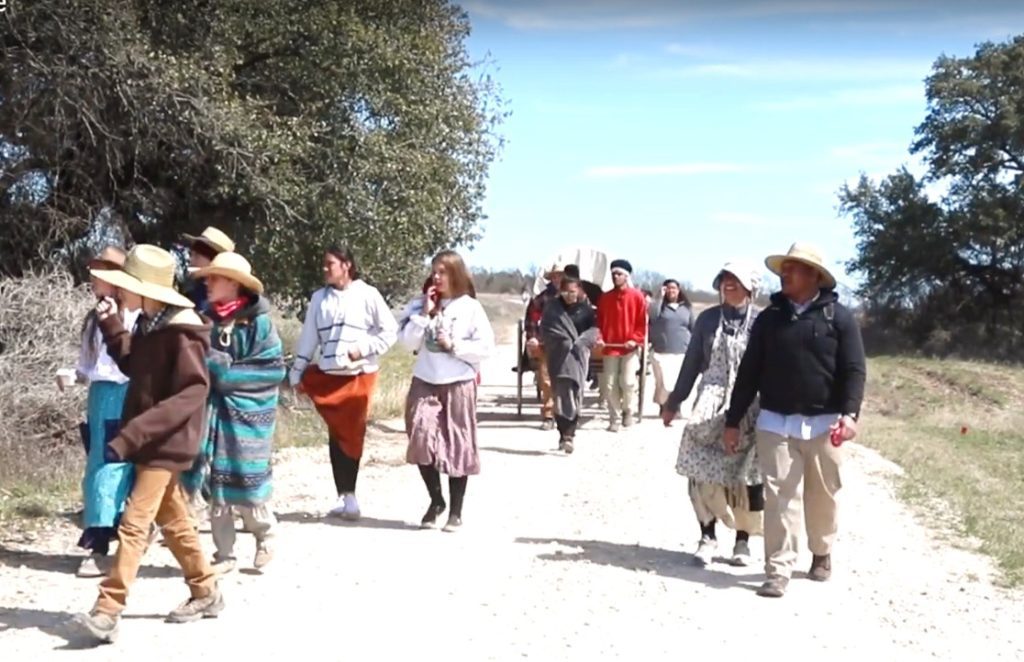
In spite of the hardships of pulling handcarts through the dirt, the leaders and youth also participated in games and devotionals after supper and built relationships with new friends. The youth and adult participants alike still enjoyed the positive attitudes and comradery which surfaced as a special part of the events.
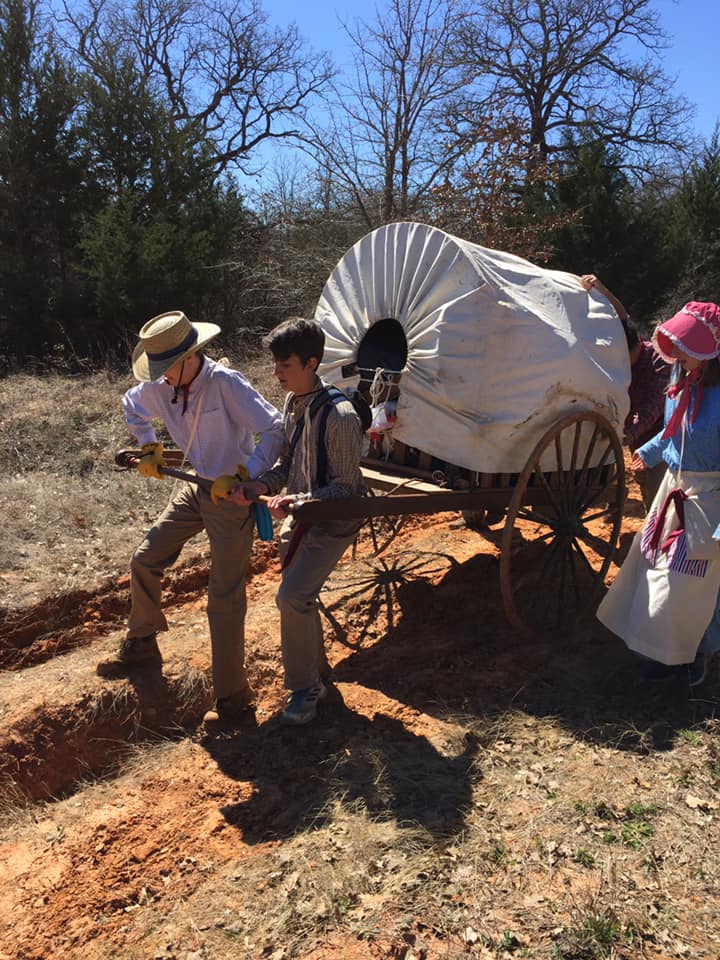
Rebecca Pilgrim, a 14-year-old student at North Ridge Middle School and member of the Watauga Ward congregation of the Church, said, “The pioneers kept going in harsh stuff, but the best part of the trek for me was being able to hang out with my friends.”
“Ma” Denice Honstein said, “We never really heard anyone complain. Everyone in our family pushed and pulled and smiled […] and more often actually laughed all through the hard times. Our boys especially, could not stop giggling when the pushing and pulling got really hard. It was music to my ears!”
Honstein’s husband, Robert, shared similar sentiments, “I witnessed some of the best qualities of these youth shine forth under some of the worst conditions,” he said. “We were cold, hungry, and tired much of the time, and yet, I witnessed these youth exercise charity, sacrifice, service, humility, and endurance. It was through little things like sharing a coat or a blanket, cutting up chicken and vegetables for dinner, or going to fetch water for everyone. The lessons [learned] were on full display in the wilderness, and that was incredibly positive and made it such a delight and a privilege to be a part of this experience.”
